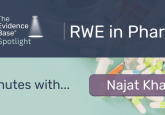ISPOR publishes SUITABILITY checklist for evaluating electronic health records data in health technology assessments

ISPOR—The Professional Society for Health Economics and Outcomes Research has announced publication of the SUITABILITY Checklist to evaluate electronic health record (EHR) data for health technology assessment (HTA), focusing on data quality, fitness-for-purpose, and governance.
ISPOR has announced the publication of the SUITABILITY Checklist, a framework for assessing whether EHR data is suitable for use in HTA processes. The ISPOR Good Practices Report, titled, “Assessing Real-World Data from Electronic Health Records for Health Technology Assessment: The SUITABILITY Checklist: A Good Practices Report of an ISPOR Task Force,” was published in the June 2024 issue of Value in Health.
The SUITABILITY Checklist focuses on two primary elements:
- Data delineation: involves a comprehensive understanding and assessment of the data’s trustworthiness
- Data fitness-for-purpose: examines the accuracy and suitability of data to answer specific research questions
Key aspects of the report
In light of the ‘inexorable increase of digital data across the globe’, the SUITABILITY Checklist has been developed to support the global health economics and outcomes research (HEOR) community to assess the quality and suitability of EHR data. The report details various aspects of using EHR data for HTA, including acceptability, data governance, patient-centricity, and taxonomy support for real-world evidence (RWE). The taskforce aims to establish consensus on good practices for conducting, reporting, and evaluating EHR data quality for HTAs. The report provides guidance to HTA agencies and policymakers on enhancing the suitability of EHR-derived data for decision-making. Recommendations include:
- Developing common standards
- Fostering multistakeholder collaborations to identify best practices
- Disseminating exemplary case studies
- Investing in workforce training dedicated to this field
As authors Rachael Fleurence (National Institutes of Health, USA) and Scott Ramsey (Fred Hutchinson Cancer Center) explain:
“The widespread proliferation and availability of EHR data systems provide new opportunities and great potential to inform and improve a host of critical enterprises in health and medicine.”
While EHR-derived databases offer significant depth and detail on patient health and care, there are also notable limitations and issues that can impact their validity and relevance for HTAs. Fleurence and Ramsey note, “The size and scope of EHR-derived analysis datasets will only grow over time.”
The report highlights the increasing integration of new data sources, such as patient-reported outcomes and self-measurement data from wearable sensors, into clinical practice and EHRs. Additionally, advancements in analytic methods, including machine learning and generative artificial intelligence, are set to revolutionize the analysis of these databases. The taskforce encourages HTA agencies to actively engage in this rapidly evolving field.
In an accompanying editorial about the SUITABILITY Checklist, Mark McClellan (Duke-Margolis Institute for Health Policy) and co-authors welcome the timely report by emphasizing the growing importance and challenges of value assessment amidst rapid healthcare innovation. The authors note:
“While there are different perspectives on how to best integrate real-world data (RWD) and evidence into payment and value-based care reforms, we can agree that it is imperative that we have systems in place to understand and measure value from a multistakeholder perspective, that the EHR data used in care delivery could be an important contributor to value assessment, and that many opportunities remain to improve its use in assessing value.”
They also stress the importance of including representatives from the patient, payer, provider, and product development communities to understand and measure value from a multistakeholder perspective. The editorial concludes by highlighting that opportunities to address persistent challenges in access and affordability are improving. This progress includes advancements in electronic data standards, interoperability, and methodologies such as embedded real-world clinical trials and tailored observational analyses, all aimed at transforming high-quality RWD into essential evidence.
Want regular updates on the latest real-world evidence news straight to your inbox? Become a member on The Evidence Base® today>>>






